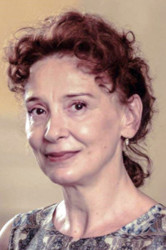 What is Europe? There is no simple answer to this question. What is the European Union?
What is Europe? There is no simple answer to this question. What is the European Union?
PDF
What is Europe? There is no simple answer to this question, even from a geographical perspective: Dahrendorf, for example, called Europe “a peninsula of the great Asian continent” which, let’s face it, sounded different than “a continent situated between the Atlantic and the Urals”, even if it refers to exactly the same territory. A more difficult response is that linked by a historical, cultural or political aspect. Yet Paul Hazard, in his excellent book The European Thought in the eighteenth – century (1981), captures undoubtedly some essential features. Here are the main points:
-
-
- ”A kind of great republic divided into several states, some monarchical, others mixed, first aristocratic, last popular; but all communicating with each other, all with the same religious background, all having the same principles of public law and policy (…)” (Voltaire cited in Hazard, p. 420)
- Neighboring peoples who are fighting with fury. Wars between neighbors or within borders. Agreements are only short armistices.
- A contradictory form, strict and uncertain at the same time. Borders pushed forward, backward, suppressed, restored: “Europe is composed of forms which it declares intangible while it touches them constantly.” (p. 420)
- Land of jealousy, of bitterness and resentment: ” Latin peoples despise Germans, massive bodies, rude temperaments, slow spirits; Germans despise Latins, tired and corrupt; Latins quarrel among themselves; you could say they suffer when faced with the recognition of the merits of neighboring nations: the first thing that comes to their mind are always the defects.” (p. 421)
- When talking about each other, the Europeans added a “but” after the enumerated qualities as if attempting to cancel their effect: “It is said that the French are polite, skilled, generous but irascible and fickle; Germans are honest, hard-working, but slow and too attracted to wine; Italians are agreeable, fine, pleasant to talk with, but jealous and traitors; Spanish are mysterious and cautious, but braggarts and formalist; English are brave to temerity, but vainglorious, disdainful and proud to ferocity … ” (p. 422)
- A thought eternally unsatisfied that constantly seeks two things: one is the happiness, the other is the truth: “it has just found a mental state apparently able to respond to this double demand and soon realized that it holds only the provisional, the relative, and even these are not mastered with firmness; and then the European thought restarts its desperate search which is its glory and its pain.” (p. 426)
-
What is the European Union? Formally, it is not difficult to be defined: a transnational organization that rests on three pillars: security and foreign policy, justice and internal affairs and economic market, all in common. But at the same time, the Union is difficult to be defined in other respects:
-
-
- it is “a site, a historic experiment, with many weak points, but, nonetheless, a crucial project for the post-modern era we live in”; it is completely original, different from any past or present model of federation or confederation; in fact, it is neither a federation nor a con-federation; it is less and more than a sum of states. (Georgiu and Carlan, 2007)
- it is “an extended neo-imperial formula”, a “postmodern empire” because its parts are admitted by their own request, and everything is subject to negotiation and compromise; this cooperative formula ensures the long-term legitimacy. (Cooper, 2007)
-
The European Union is a political and juridical-administrative mirror of cultural Europe, despite their obvious geographical differences. The Brexit event, no matter how many emotions or disappointments stirs, fits perfectly into the special logic of our continent.
*Based on my former paper The Paradox of “White, Christian and Rational” presented at the conference Is There Enough Europe and Union in the European Union? Sofia, May 2016, unpublished
References:
Cooper, R. (2003/2007), Order and Chaos in 21st Century, Bucuresti: Univers Enciclopedic.
Georgiu, G. and Carlan, A. (2007), The cultural dimension of European Integration, in Dobrescu, P., Ţăranu, A., Bârgăoanu, A. (eds), Globalisation and Policies of Development, Bucuresti: comunicare.ro, pp. 109-117.
Hazard, P. (1981), The European Thought in 18th Century, Univers: Bucureşti, pp. 420-446.